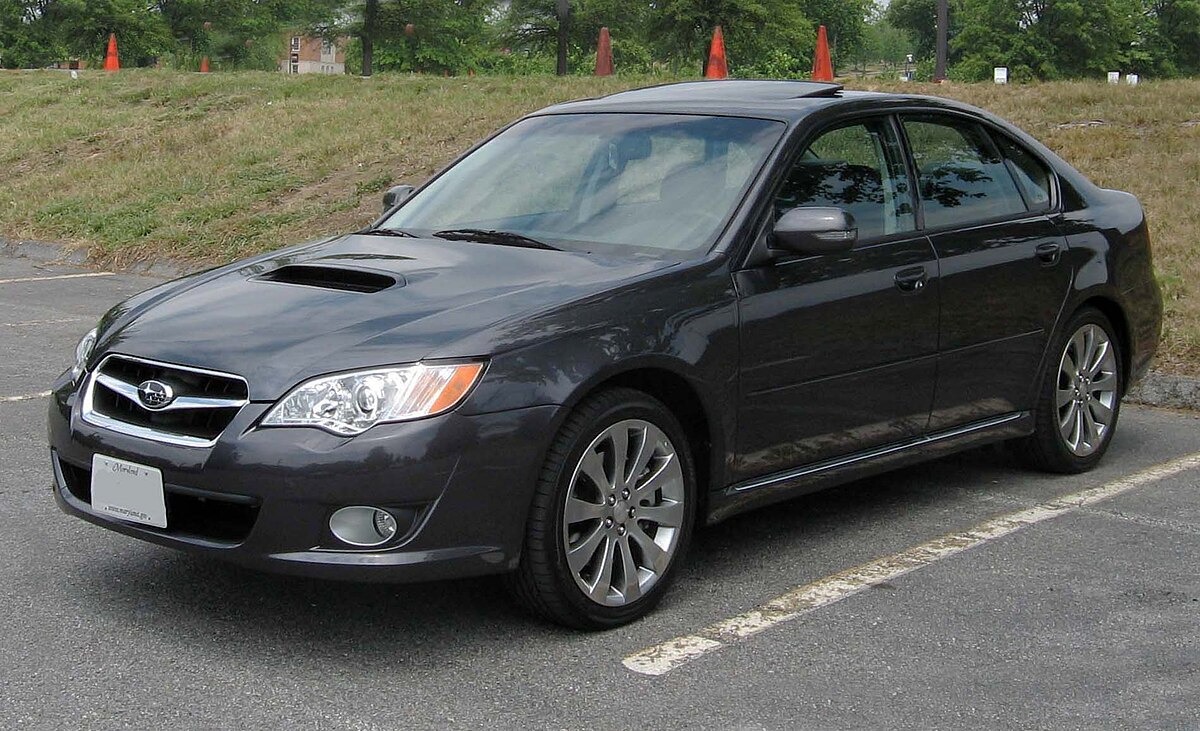When purchasing a sedan, one of the most important considerations for buyers—whether for personal use or investment—is how well the vehicle will retain its value over time.
While some sedans maintain strong resale values even after five years, others experience steep depreciation, leading to significant financial losses for their owners. Understanding which sedans hold their worth and which do not can be the difference between a smart buy and a costly mistake.
Several factors influence resale value, including brand reputation, reliability, maintenance costs, market demand, and overall design appeal.
Sedans with excellent resale values typically offer a blend of proven reliability, fuel efficiency, and strong customer loyalty, while those with sharp drops often suffer from high maintenance costs, lackluster performance, or outdated technology.
In this article, we will explore five sedans with excellent resale after five years, highlighting the reasons behind their strong value retention. Following that, we’ll examine five sedans notorious for steep depreciation, explaining the pitfalls that cause their values to plunge.
By comparing both ends of the spectrum, prospective buyers will gain valuable insights into making informed decisions that protect their investment and ensure long-term satisfaction.
5 Sedans With Excellent Resale After 5 Years
Sedans that maintain strong resale value five years after purchase are highly sought after by buyers who understand the importance of long-term ownership costs.
These vehicles typically combine factors such as reliability, brand prestige, fuel efficiency, and overall market demand to create a formula for value retention.
When choosing a sedan, paying attention to these characteristics can make a significant difference in total cost of ownership, especially as depreciation is the single largest expense a car owner faces after purchase.
One of the key drivers behind excellent resale value is reliability. Sedans that have a reputation for mechanical soundness, fewer repairs, and low maintenance costs tend to be preferred in the used car market.
Buyers often gravitate toward models with proven track records for durability, especially when warranties have expired. Brands like Toyota and Honda, known for their longevity and low repair costs, often dominate this segment.
Another critical aspect is brand loyalty and reputation. Sedans from manufacturers that consistently deliver quality and customer satisfaction enjoy higher demand in the secondary market.
Features such as fuel efficiency, smooth ride quality, and modern safety technology also bolster a sedan’s desirability, especially as buyers seek vehicles that are practical and cost-effective.
Importantly, the design and styling of the sedan also play a role. Timeless designs that don’t quickly age are more likely to attract used buyers. Sedans that have aged well visually tend to retain appeal, helping them command better resale prices.
In the following sections, we will detail five sedans that exemplify these qualities and consistently hold their value after five years.
Each of these vehicles offers unique benefits that make them smart choices for buyers who want to protect their investment while enjoying a quality driving experience.
1. Toyota Camry
The Toyota Camry has long been a benchmark for midsize sedans, and its reputation for reliability and strong resale value is well-earned.
One of the top-selling sedans globally, the Camry combines proven engineering with a balanced mix of comfort, fuel efficiency, and modern features, making it an enduring favorite among new and used car buyers alike.
What truly sets the Camry apart in terms of resale value is its exceptional reliability. Toyota’s longstanding commitment to quality control means Camrys typically require fewer costly repairs as they age.
Many owners report high mileage with minimal issues, contributing to the model’s strong resale demand.
According to various market analyses, the Camry retains around 50-55% of its original value after five years, a figure that significantly outperforms many competitors in the midsize sedan segment.
Fuel efficiency is another strong point. Camrys equipped with the four-cylinder engine deliver excellent miles per gallon, and Toyota’s hybrid variants push that even further.
This makes the vehicle appealing not only to traditional buyers but also to those who prioritize low running costs, especially with rising fuel prices.
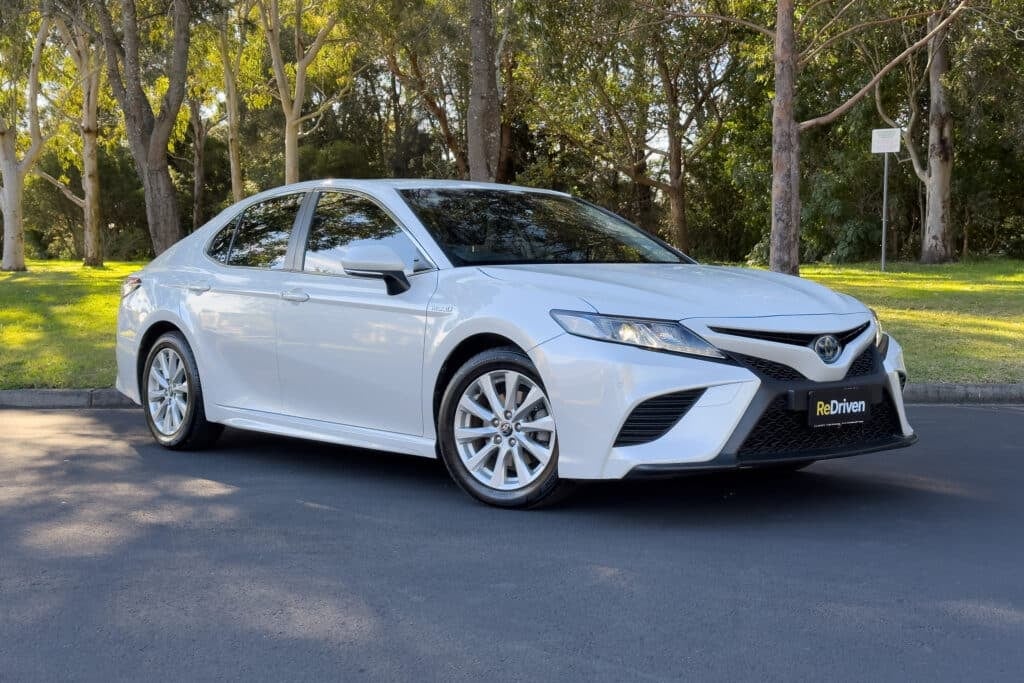
The Camry also offers a well-rounded package of comfort and technology, featuring user-friendly infotainment, advanced safety systems (like Toyota Safety Sense), and a spacious interior. These features ensure that even older models remain competitive in the used market.
Another factor bolstering resale is the Camry’s broad appeal — it suits families, commuters, and even fleet buyers, which keeps used supply steady but balanced with consistent demand. This balance helps stabilize prices and ensures owners can sell their vehicles without significant losses.
In summary, the Toyota Camry is an excellent example of how a sedan with a reputation for reliability, efficiency, and versatility can maintain strong resale value after five years, making it a smart choice for budget-conscious buyers and investors alike.
2. Honda Accord
The Honda Accord stands alongside the Toyota Camry as one of the most respected midsize sedans in the automotive world, and for good reason.
It combines a sleek design, robust reliability, and impressive driving dynamics—all of which contribute significantly to its excellent resale value after five years.
One of the primary reasons the Accord maintains such strong resale is its reputation for dependability. Honda engines and transmissions are known for their durability, with many owners reporting trouble-free experiences well past 150,000 miles.
This reliability means fewer costly repairs over the life of the vehicle, which reassures used car buyers and boosts resale demand.
The Accord also offers strong fuel economy across its range, especially with the introduction of turbocharged four-cylinder engines and hybrid variants in recent years.
This efficiency appeals to a wide range of buyers, from daily commuters to families looking to reduce fuel expenses, increasing its desirability in the used market.
In terms of performance and comfort, the Accord delivers a balanced ride with responsive handling, making it fun to drive without sacrificing passenger comfort.
The cabin is spacious, with high-quality materials and a user-friendly infotainment system that remains competitive even on older models.
Honda’s commitment to safety is another selling point. The Accord comes equipped with Honda Sensing—a suite of advanced driver assistance technologies—that enhances driver confidence and attracts buyers focused on safety.
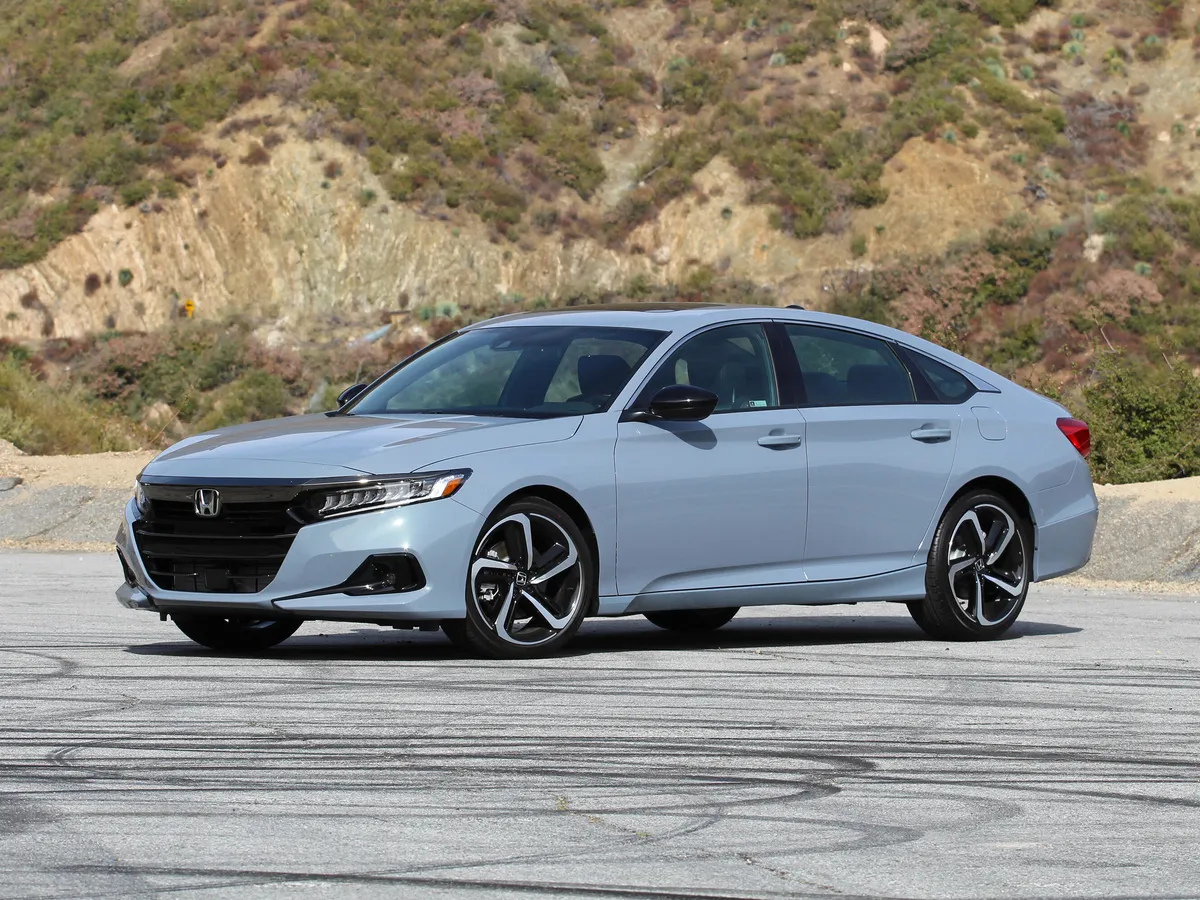
The Accord’s timeless styling also plays a role in its value retention. It manages to look modern and elegant several years after purchase, which helps it stand out in a crowded used car market.
Ultimately, the Honda Accord’s blend of reliability, fuel efficiency, safety, and style ensures that it holds its value exceptionally well.
Buyers seeking a sedan that will serve them well for years, both mechanically and financially, consistently turn to the Accord, making it a smart investment for those concerned about resale value.
3. Subaru Legacy
The Subaru Legacy is a standout choice for buyers who prioritize all-weather capability, safety, and long-term value.
Known for its standard all-wheel-drive (AWD) system, the Legacy appeals to drivers in regions with challenging weather, and this feature plays a major role in its excellent resale value after five years.
One of the key strengths behind the Legacy’s strong resale is its dependability combined with AWD practicality. Subaru has built a loyal customer base who appreciate the brand’s ruggedness and reliability.
Many Legacy owners report that their vehicles remain mechanically sound well past 100,000 miles with routine maintenance. This dependability reassures used car buyers who seek longevity without unexpected repair costs.
Fuel economy in the Legacy is competitive for an AWD sedan, thanks to efficient four-cylinder engines and a continuously variable transmission (CVT).
While it may not match the fuel numbers of some front-wheel-drive competitors, the added traction and safety benefits justify the slightly higher fuel consumption for many buyers, enhancing its appeal in used markets where AWD is a sought-after feature.
The Legacy also scores high marks for safety. It consistently earns top ratings from the IIHS and NHTSA, thanks in part to Subaru’s EyeSight Driver Assist technology, which includes adaptive cruise control, lane-keeping assist, and automatic emergency braking. These features increase the vehicle’s desirability to families and safety-conscious buyers.
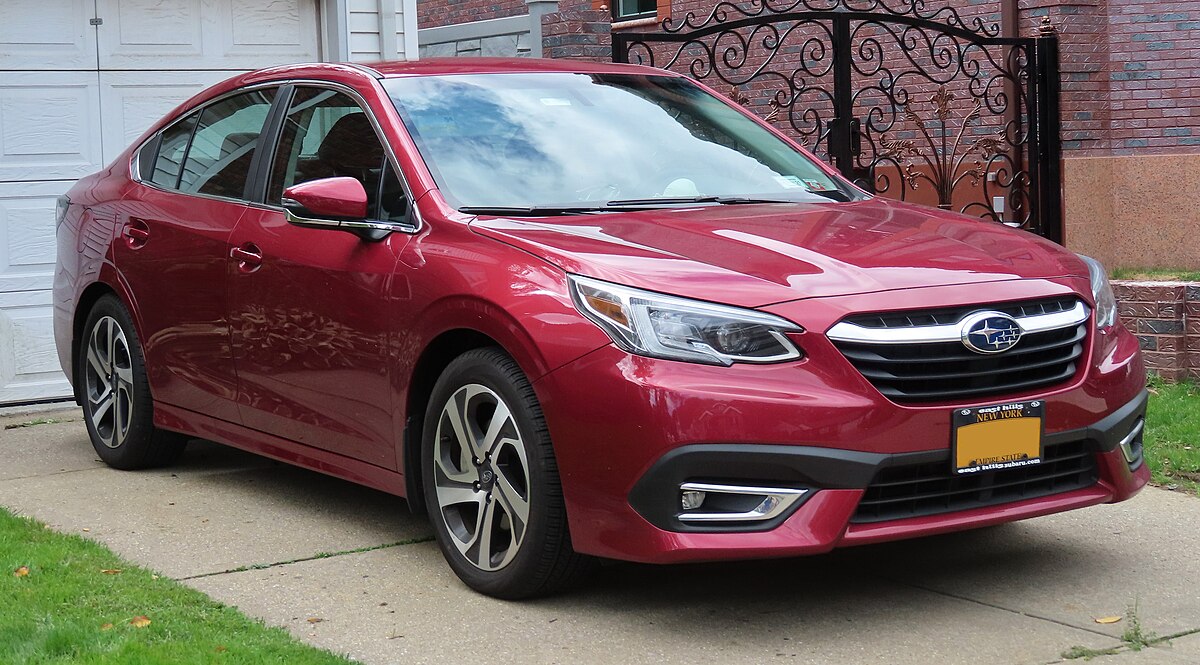
Inside, the Legacy offers a comfortable and quiet cabin with user-friendly technology and quality materials. Its interior space is generous for the segment, making it a practical choice for daily driving and long trips.
Styling-wise, the Legacy balances modern design with subtlety, maintaining an elegant yet practical appearance that ages well over time. This timeless look helps keep demand steady in the resale market.
In summary, the Subaru Legacy’s blend of AWD capability, safety features, reliability, and comfort all contribute to its excellent resale value after five years, making it a smart option for buyers who want value without compromising practicality.
4. Lexus ES
The Lexus ES is a luxury midsize sedan that consistently impresses with its strong resale value after five years, largely due to its reputation for exceptional reliability and premium comfort.
As the entry-level model in Lexus’s lineup, the ES offers a blend of luxury features and durability that appeals to both new and used car buyers.
One of the main reasons the ES holds its value so well is Lexus’s commitment to building reliable vehicles. The ES shares many components with the Toyota Camry, including proven powertrains, but enhances the experience with higher-end materials and advanced features.
Owners often report minimal mechanical issues even after years of use, which increases buyer confidence in the used market.
Fuel economy for the Lexus ES is competitive in the luxury sedan segment, especially with hybrid variants available. This efficiency makes it a practical choice for drivers who want a comfortable, upscale ride without exorbitant fuel costs, further enhancing its resale appeal.
The ES shines in luxury and comfort. It boasts a spacious and quiet cabin with premium upholstery, advanced infotainment, and numerous convenience features.
The smooth ride quality, refined suspension, and sound insulation ensure that passengers enjoy a first-class experience, whether commuting or on longer journeys.
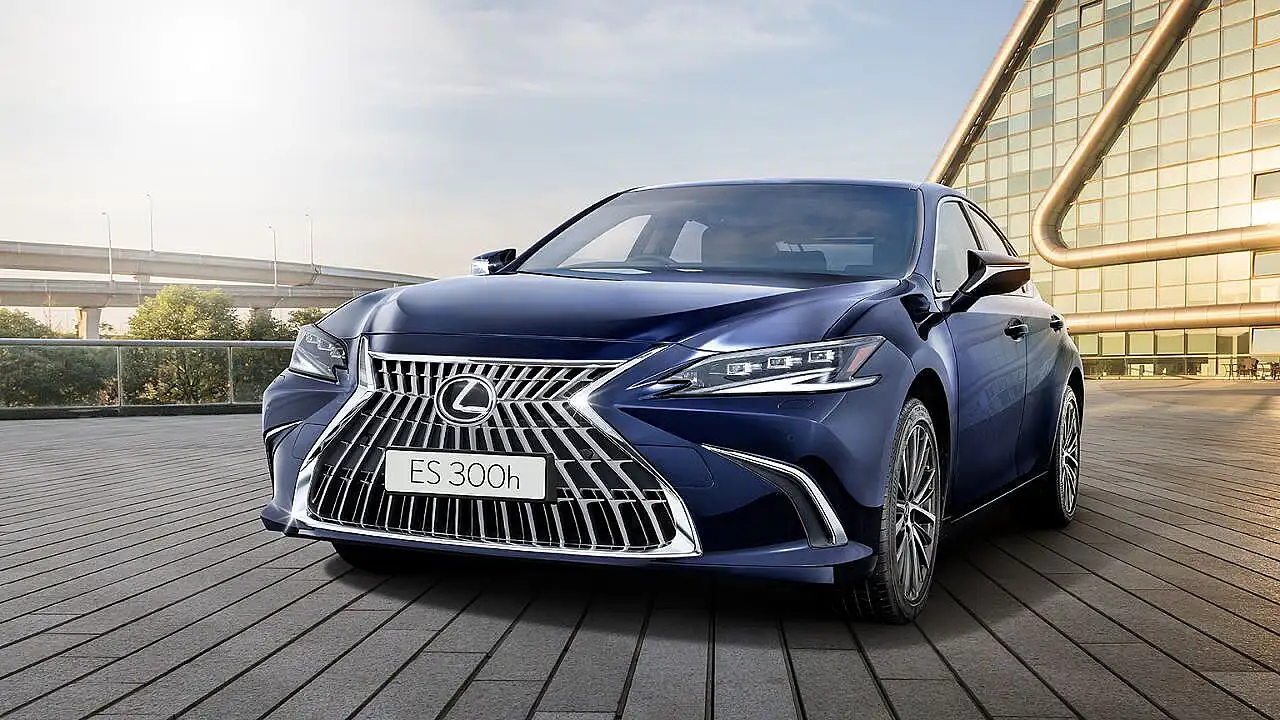
Safety is another strong point. The ES comes equipped with Lexus Safety System+ which includes adaptive cruise control, lane departure alert, and automatic emergency braking, features that have become important factors for buyers looking for peace of mind.
In addition, the Lexus brand itself carries significant prestige, which bolsters the ES’s resale value. Lexus owners tend to be loyal, and the brand’s reputation for quality supports consistent demand in the used luxury sedan market.
To sum up, the Lexus ES combines luxury, reliability, and fuel efficiency with strong safety credentials, resulting in excellent resale value after five years. For buyers seeking an upscale sedan that holds its worth, the ES is a standout option.
5. Mazda6
The Mazda6 has steadily built a reputation as one of the best-driving midsize sedans on the market, and it pairs this with solid reliability and value retention.
Over the years, Mazda has emphasized sporty handling, stylish design, and a premium-feeling interior—all factors that contribute to the Mazda6’s strong resale value after five years.
One of the key factors helping the Mazda6 hold its value is its engaging driving experience. Unlike many midsize sedans that prioritize comfort alone, the Mazda6 offers sharp handling, responsive steering, and a smooth ride, making it a favorite for drivers who enjoy a more spirited drive.
This dynamic appeal attracts a niche group of buyers who appreciate performance without sacrificing practicality, which helps maintain demand in the used car market.
In terms of reliability, Mazda6 models have shown consistent durability. Routine maintenance tends to be straightforward and reasonably priced, and the car benefits from Mazda’s growing reputation for quality engineering.
This reliability reassures buyers that they won’t face unexpected repair costs, a major plus when considering resale value.
Fuel efficiency is also competitive in the segment, with four-cylinder engines offering respectable mileage figures.
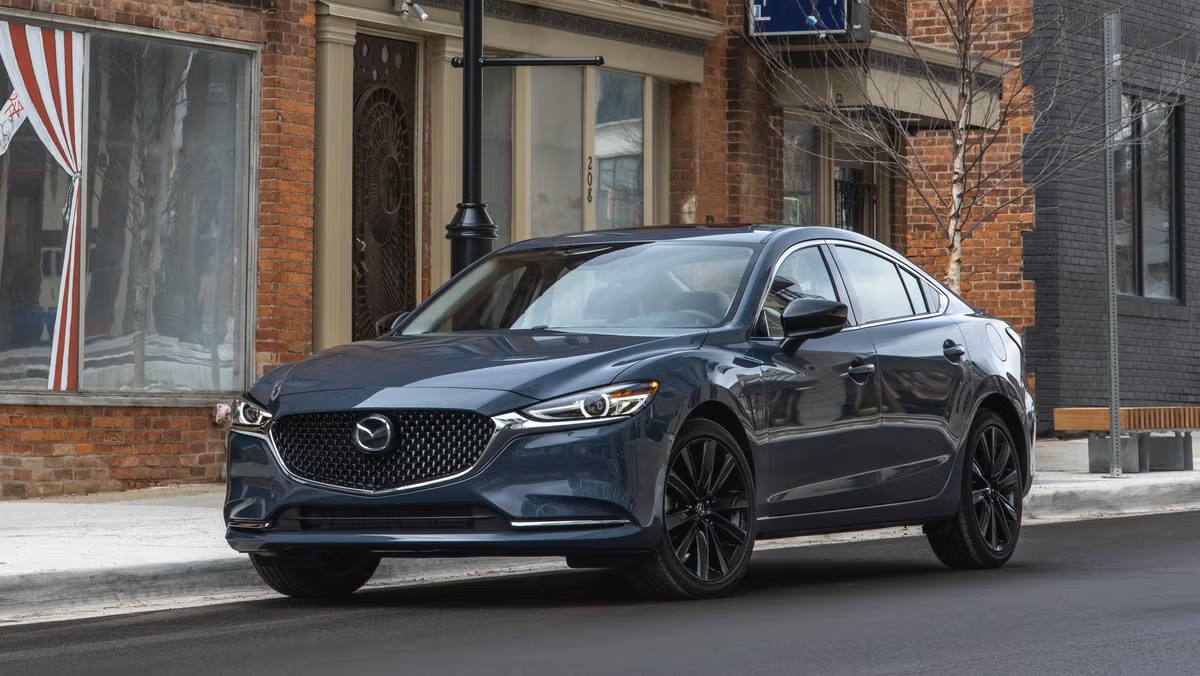
Mazda’s focus on efficient yet enjoyable driving balances economy and performance, appealing to budget-conscious buyers who don’t want to sacrifice style or fun.
The Mazda6’s interior design is another standout. It offers an upscale cabin with high-quality materials, user-friendly infotainment, and comfortable seating. This combination of premium touches and practicality helps the car feel fresh and desirable even years after its initial release.
Lastly, the Mazda brand itself has gained traction for building reliable, well-rounded vehicles that appeal to buyers seeking something different from mainstream Japanese sedans. This increasing brand equity supports the Mazda6’s resale value.
In conclusion, the Mazda6’s blend of sporty driving, strong reliability, good fuel economy, and stylish design ensures it holds its value well after five years, making it an excellent choice for buyers prioritizing both enjoyment and long-term investment.
5 Sedans With Steep Drops
When it comes to buying a sedan, resale value is a critical consideration—especially if you plan to sell or trade in your vehicle after several years.
While some sedans maintain their value remarkably well, others experience steep depreciation that can significantly impact your overall ownership costs.
Understanding which models tend to lose value quickly helps buyers make more informed decisions and avoid unexpected financial losses.
Several factors influence a sedan’s depreciation, including brand reputation, reliability, demand, fuel economy, and overall ownership experience.
Models with high maintenance costs, poor reliability records, or outdated designs often suffer from sharp declines in resale value.
Additionally, sedans in segments with declining popularity—such as traditional gas-powered mid-size or full-size sedans—face increased depreciation due to shifting consumer preferences toward SUVs and crossovers.
This section explores five sedans notorious for steep drops in resale value after five years. These vehicles may have suffered from quality issues, high repair costs, or simply a lack of consumer demand in the used market.
Some models might initially attract buyers with aggressive pricing or appealing features but ultimately lose value rapidly because of costly ownership or fading desirability.
By highlighting these sedans, we aim to help potential buyers avoid costly mistakes and recognize the importance of considering depreciation alongside other factors when purchasing a vehicle.
While these models might offer short-term advantages such as low upfront prices or strong incentives, their poor long-term value retention can lead to significant financial setbacks down the road.
In the following detailed reviews, we’ll break down why each of these five sedans struggles with resale, pinpointing common issues and market factors that contribute to their rapid value decline.
1. Chrysler 200
The Chrysler 200 is often cited as a prime example of a sedan that suffers from steep depreciation within just a few years of ownership.
Despite its stylish design and competitive features, the 200 struggles to hold value due to a combination of reliability concerns, brand perception, and market dynamics.
One of the main reasons the Chrysler 200 depreciates rapidly is its spotty reliability record. Various model years have been plagued with issues ranging from transmission failures to electrical gremlins.
These problems have eroded consumer confidence and made the vehicle less desirable in the used car market. Buyers often anticipate costly repairs or maintenance, leading them to seek alternatives, which drives down resale prices.
The 200 also suffers from the overall decline of Chrysler as a brand in the sedan segment. While Chrysler has a rich automotive history, its modern sedans have struggled to maintain a foothold against more trusted Japanese and American competitors.
This brand perception weighs heavily on the 200’s resale value, as buyers tend to favor vehicles with stronger reputations for long-term dependability.
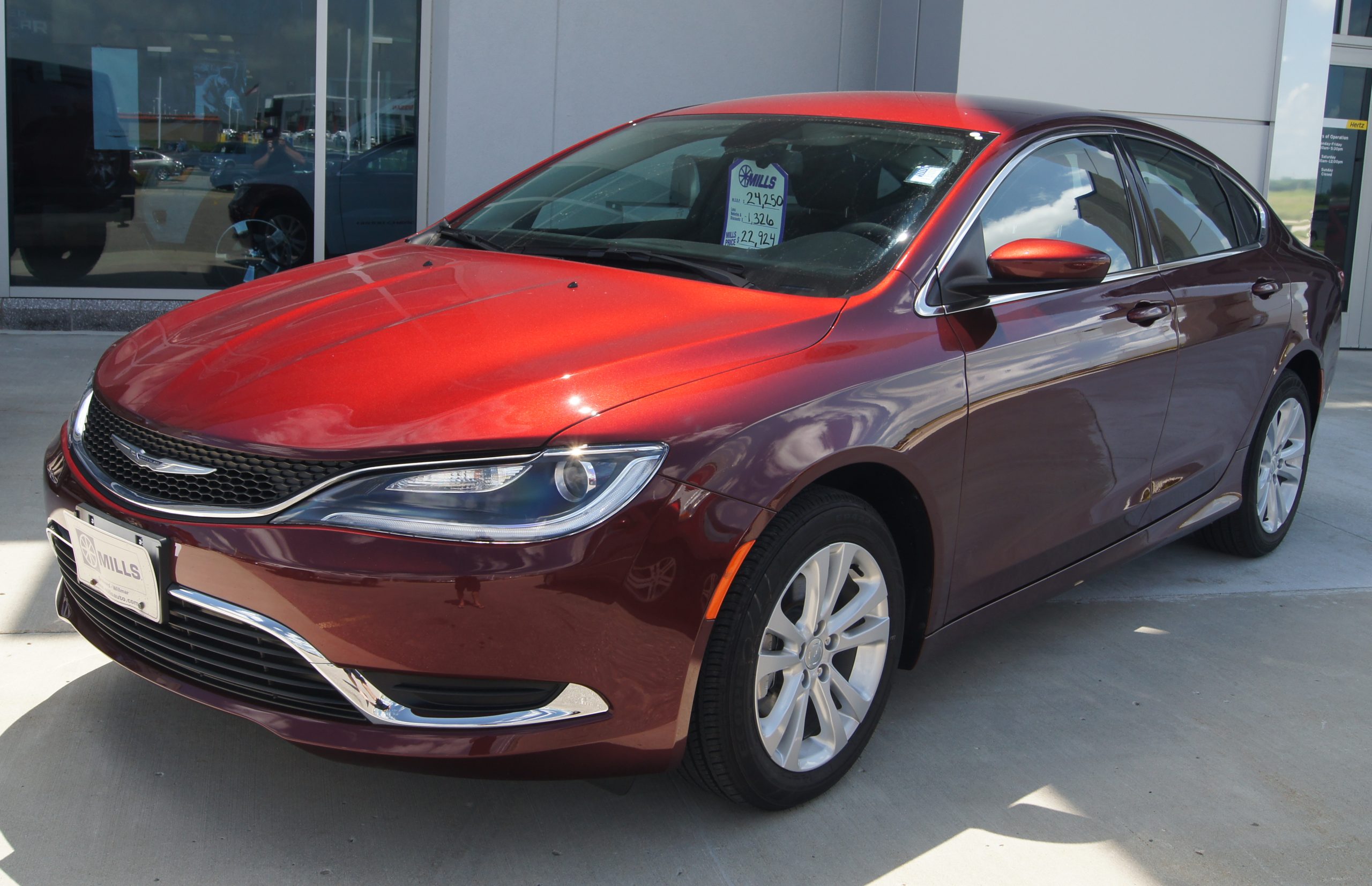
Another factor is the shrinking demand for mid-size sedans in general. As consumers increasingly gravitate toward SUVs and crossovers, models like the Chrysler 200 face tougher competition and less market interest, which further depresses their resale prices.
Fuel economy and interior quality are decent but not enough to offset the negatives. The 200’s ride and handling receive mixed reviews, with some owners citing a lack of refinement compared to rivals. Its infotainment system and cabin materials, while adequate, don’t stand out in the segment.
In summary, while the Chrysler 200 might attract budget-conscious buyers initially due to its low price, its steep depreciation after five years reflects ongoing reliability concerns, brand challenges, and changing consumer preferences. For buyers focused on resale value, the 200 represents a risky investment with significant financial drawbacks over time.
2. Ford Fusion
The Ford Fusion has been a popular midsize sedan for many years, but it suffers from steep depreciation once it hits the five-year mark.
Despite its initial appeal with sharp styling, decent performance, and a comfortable interior, several factors contribute to the Fusion’s rapid loss in value.
One of the primary reasons for the Fusion’s steep depreciation is Ford’s discontinuation of the model in recent years, which significantly impacts demand for used versions.
When a manufacturer ends production, the perception of limited parts availability and uncertain future support often discourages buyers, leading to lower resale prices.
Reliability concerns also play a role. While many Fusion owners have positive experiences, certain model years have faced issues such as transmission failures and electronic glitches.
These reliability problems lead buyers to hesitate when considering a used Fusion, particularly in a market crowded with more dependable competitors.
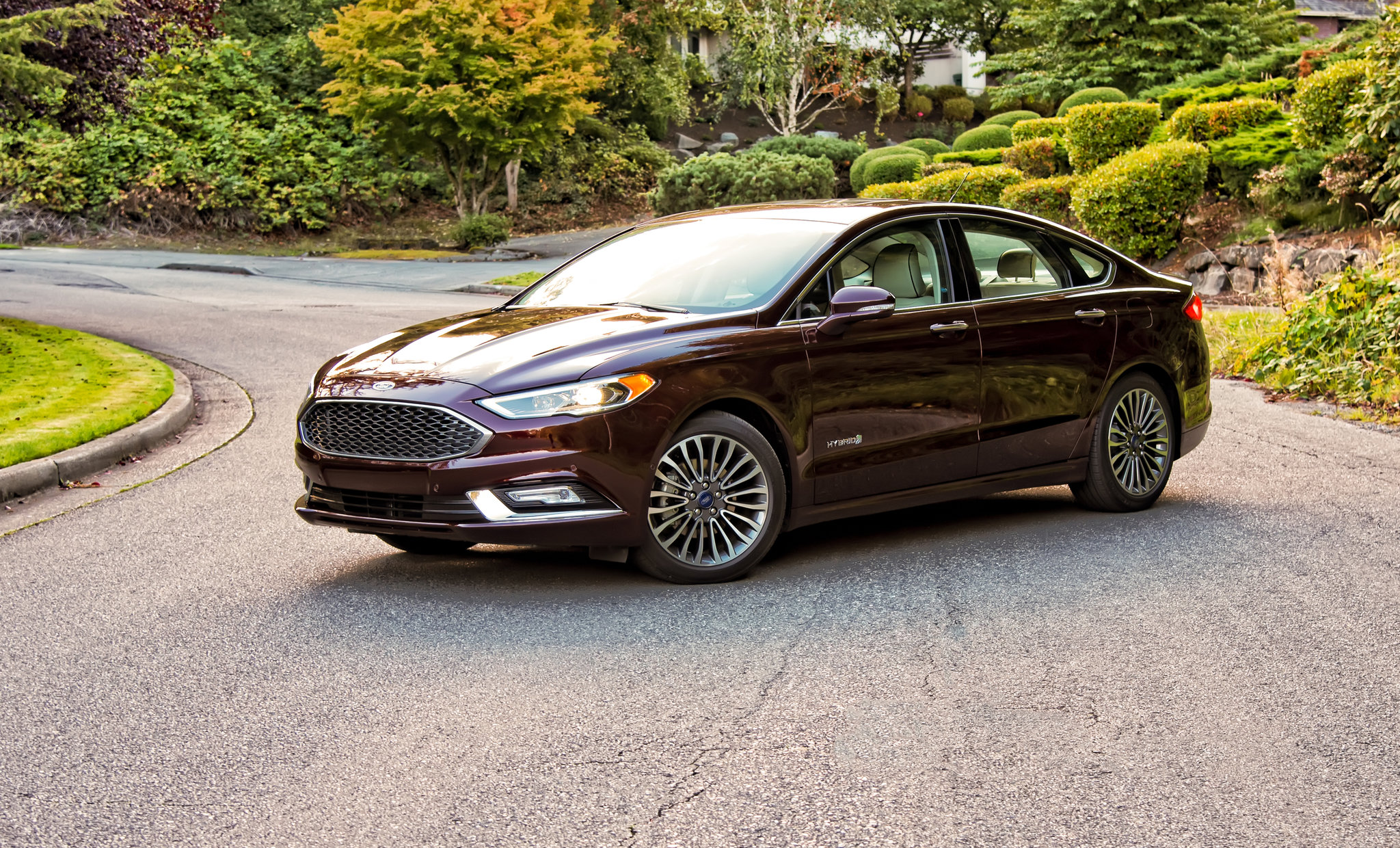
The Fusion’s fuel economy, although competitive at launch, falls behind more modern hybrids and efficient sedans currently available. As fuel efficiency becomes a stronger buying factor, older Fusion models seem less attractive, further contributing to depreciation.
Additionally, the Fusion’s interior and technology features, which were once a strong selling point, now feel dated compared to rivals. As infotainment systems and cabin materials evolve rapidly, buyers tend to favor vehicles that look and feel more modern in the used market.
Consumer preferences also factor in: the midsize sedan segment has taken a hit overall as SUVs and crossovers dominate sales. The Fusion, despite its qualities, cannot escape the trend away from traditional sedans, leading to reduced demand and lower resale values.
In conclusion, the Ford Fusion’s steep depreciation after five years results from its discontinuation, spotty reliability in some years, dated tech, and shifting consumer tastes.
Buyers prioritizing long-term value may want to consider other options in the midsize sedan category to avoid substantial financial losses.
3. Nissan Altima
The Nissan Altima has long been a staple in the midsize sedan market, but its resale value often takes a significant hit after five years. While the Altima offers decent comfort, technology, and fuel economy, several factors contribute to its steep depreciation.
A major factor behind the Altima’s rapid loss of value is inconsistent reliability across model years.
Some generations have experienced engine problems, including timing chain issues and variable valve timing failures, which can lead to costly repairs. These concerns tend to deter used buyers, negatively impacting resale prices.
The Altima also faces stiff competition from more reliable and better-reviewed rivals such as the Toyota Camry and Honda Accord. These competitors have built stronger reputations for longevity and owner satisfaction, making the Altima less appealing in the used car market.
Another contributor to depreciation is the growing shift away from sedans in favor of SUVs and crossovers, a trend that has affected many midsize sedans. The Altima, despite redesigns and updates, struggles to maintain its relevance among buyers who prefer higher-riding vehicles.
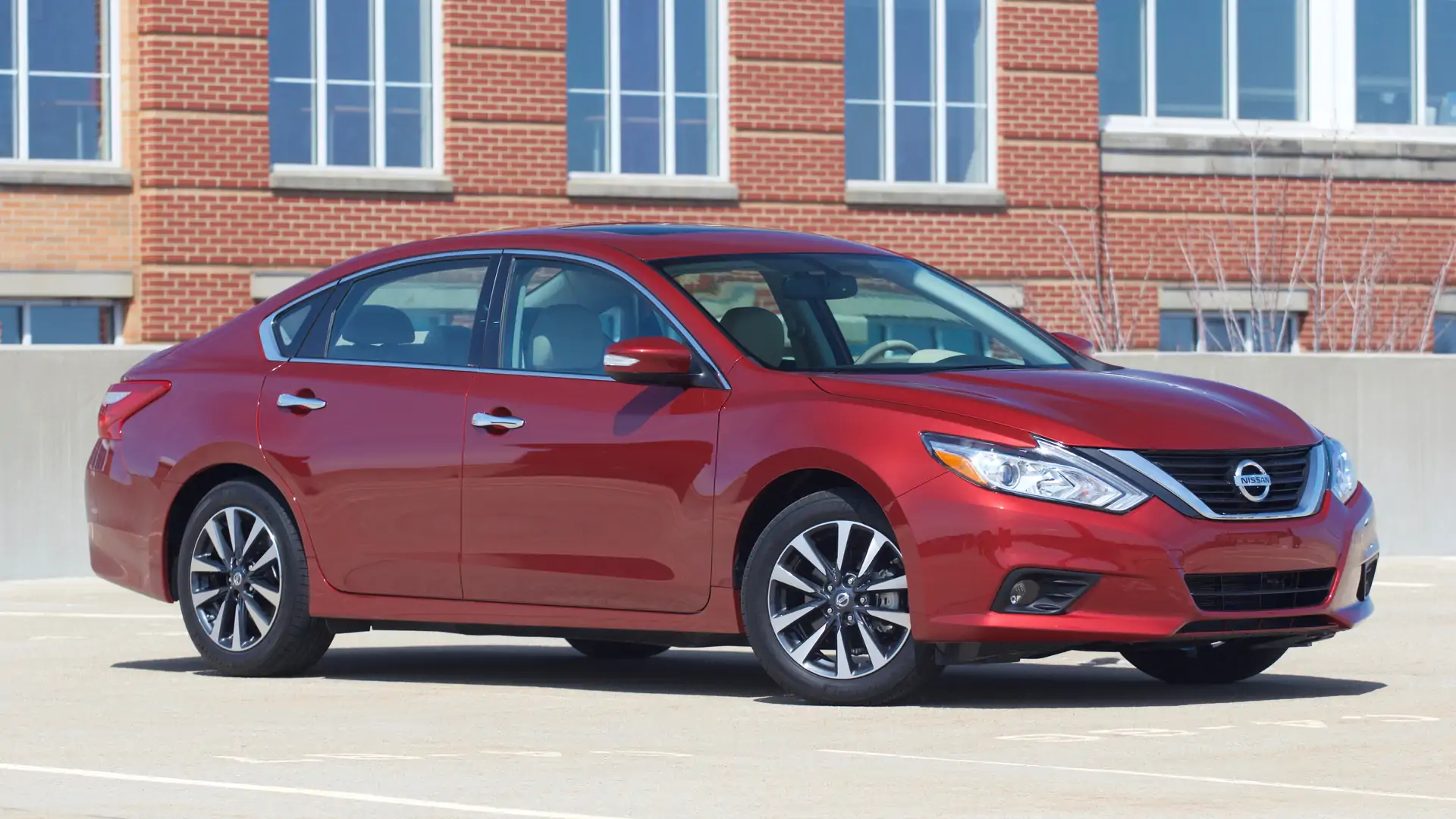
The interior, while comfortable and well-equipped in newer models, often lacks the refinement found in competitors. Infotainment systems in older models can be clunky, and material quality sometimes feels subpar, reducing desirability over time.
Fuel efficiency remains competitive but is not class-leading, especially with newer hybrid and turbocharged options from other manufacturers gaining favor. As buyers seek more economical and environmentally friendly options, the Altima’s traditional engine lineup appears less compelling.
Finally, brand perception plays a role. Nissan’s image in the midsize sedan segment has diminished slightly, impacting buyer confidence. When considering a used Altima, potential buyers often weigh these factors against price, usually negotiating lower resale values.
In summary, the Nissan Altima’s steep depreciation after five years is largely due to reliability concerns, strong competition, evolving consumer preferences, and a less compelling interior. While it remains a practical choice, buyers should be aware of its potential resale challenges.
4. Chevrolet Malibu
The Chevrolet Malibu has long been Chevrolet’s flagship midsize sedan, but it experiences significant depreciation within five years of ownership. Despite its appealing styling and competitive features at launch, several issues have contributed to its steep loss in resale value.
One of the primary reasons for the Malibu’s depreciation is its mixed reliability record. While some model years have been dependable, others have suffered from issues like transmission problems and engine malfunctions.
These inconsistent reliability reports cause uncertainty among used buyers, pushing resale prices downward.
The Malibu also faces intense competition from midsize sedans that consistently score higher in reliability and owner satisfaction, such as the Honda Accord and Toyota Camry. These rivals have established stronger reputations, leaving the Malibu less favored in the resale market.
Additionally, the Malibu’s interior quality and technology offerings tend to lag behind segment leaders. Although recent models have improved, older Malibus have been criticized for less refined materials and outdated infotainment systems. This makes the vehicle less attractive to buyers looking for a modern driving experience.
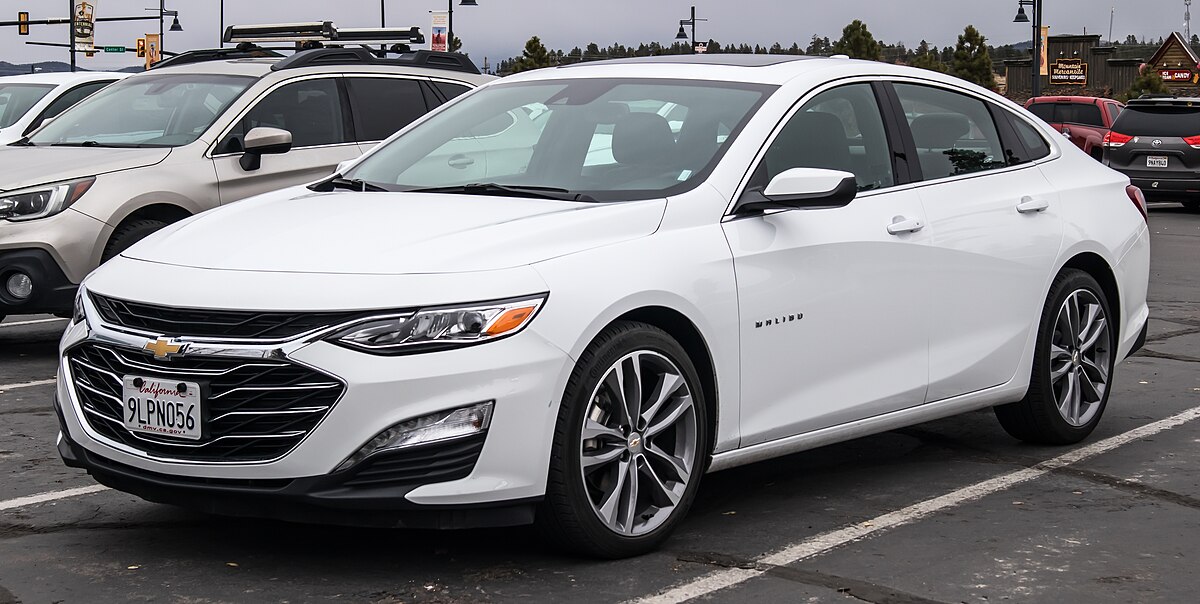
Fuel economy for the Malibu is average but not class-leading, and as hybrid and turbocharged alternatives gain popularity, the traditional Malibu models start to lose their appeal. Buyers who prioritize efficiency and innovation often bypass the Malibu in favor of newer, more advanced vehicles.
Another factor is the general decline in midsize sedan popularity as more consumers shift toward SUVs and crossovers. This market shift reduces demand for vehicles like the Malibu, which in turn accelerates depreciation.
Lastly, Chevrolet’s brand perception in the sedan segment has taken a hit as it pivots more towards trucks and SUVs, which affects buyer confidence when considering used Malibus.
In conclusion, the Chevrolet Malibu’s steep depreciation after five years is driven by inconsistent reliability, tough competition, outdated interior features, and changing consumer preferences. Prospective buyers should carefully weigh these factors against purchase price to avoid unexpected losses.
5. Volkswagen Passat
The Volkswagen Passat is a midsize sedan that initially attracts buyers with its European styling, spacious interior, and solid driving dynamics. However, despite these positives, the Passat tends to depreciate sharply after five years, leading to steep drops in resale value.
A key reason for this depreciation is the Passat’s inconsistent reliability record, especially in North America. Certain model years have been affected by costly issues such as engine misfires, transmission problems, and electrical faults. These maintenance concerns make used Passats less attractive to buyers wary of expensive repairs down the line.
Another factor contributing to the Passat’s steep depreciation is Volkswagen’s weaker brand presence in the U.S. sedan market, particularly compared to more trusted Japanese competitors. While VW has a loyal following, many buyers perceive the brand as riskier in terms of long-term ownership costs and reliability.
The Passat’s interior, although spacious, sometimes falls short in terms of material quality and technology features, especially in older models. Buyers shopping used often favor sedans with more up-to-date infotainment systems and upscale cabins, putting the Passat at a disadvantage.
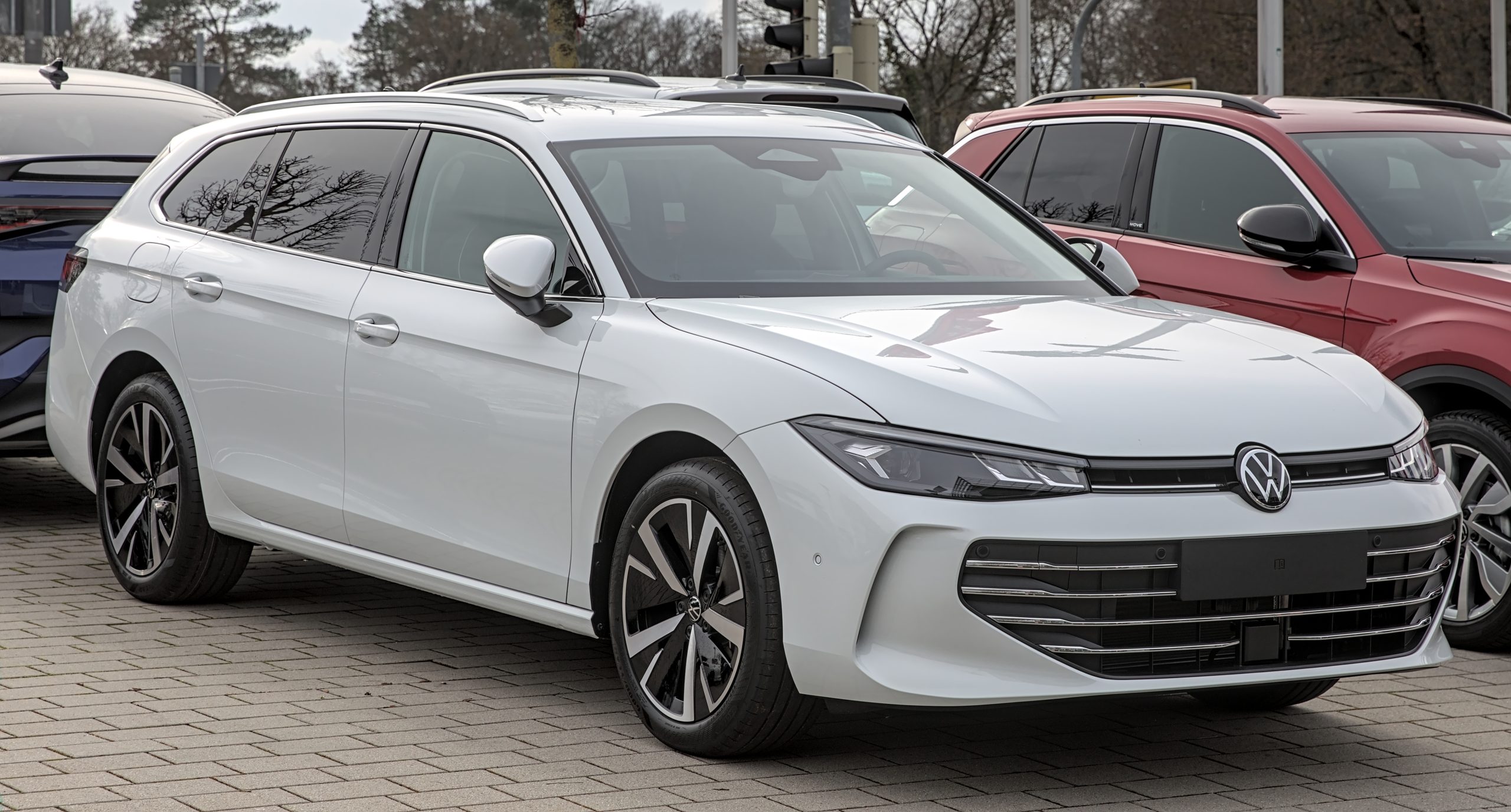
Fuel efficiency is average for the segment, but with rising interest in hybrids and efficient turbocharged models from rivals, the Passat’s traditional engine lineup feels less competitive. Additionally, shifting consumer tastes favor SUVs and crossovers, further reducing demand for sedans like the Passat.
Furthermore, Volkswagen’s reputation took a hit after the diesel emissions scandal, affecting consumer trust in the brand as a whole and indirectly influencing resale values of all VW models, including the Passat.
In summary, the Volkswagen Passat’s steep depreciation after five years is influenced by its reliability concerns, brand perception challenges, dated technology, and shifting market preferences.
While it offers a comfortable ride and spacious cabin, buyers should be aware of its rapid loss in value when considering a used Passat.
Also Read: 5 Cars That Don’t Rattle on Dirt Roads and 5 That Fall Apart Instantly

